Rural-based farm contractors in Holland are facing similar challenges to their Irish counterparts as members of the Association of Farm & Forestry Contractors in Ireland (FCI) found out during their recent visit to the Dutch contractors association, Cumela, and some of its members.
Pieter van der Vlugt, of RVR Hoofddorp, BV, runs his contractor business at the edge of Amsterdam’s Schipol Airport and is a good example of a contractor managing change.

Pieter van der Vlugt has a large machinery workshop and does most of the machinery repairs in-house. He runs two Agrifac, four-row, self-propelled sugar beet harvesters and harvests in excess of 600 ha of sugar beet in his region.
Pieter runs a fleet of 30 mainly New Holland tractors and has adapted his business so that it is now almost 35% agri contracting, 25% his own farm work and 40% non-agri work covering areas such as airport services at nearby Schipol. These range from grass cutting to snow management in the winter months.

Dutch contractor Pieter van der Vlugt (centre), of RVR Hoofddorp BV discussion the issues facing contractors dealing with a growing urban environment as he runs his business at the edge of Amsterdam’s Schipol Airport.
Pieter’s contractor business is split between two locations as it has evolved by a series of mergers of three contractor’s businesses over 55 years. He carries out a range of tillage contracting operations including full services for potato and sugar beet growers, as well as growing some crops of his own. His main operation, near Amsterdam, is being squeezed by urban development and this has reduced his farm contracting operations over time. He still runs two self-propelled sugar beet harvesters, three self-propelled sprayers and four combines, but he is well aware that this side of his business is declining.

Pieter van der Vlugt runs a fleet of three self-propelled sprayers and has a team of 40 machinery operators.
His beet area is now 500ha and he knows this is not enough to justify the two harvesters even with the harvesting charge of €330/ha. Recently he sold two of his combines and expects that more will go as the nature of his contracting business is forced to change.
Pieter runs a fleet of New Holland machines for good reason; he sub-let a workshop in his yard to a local New Holland dealer. This gives him good access to service and spare parts at all times.

Heavy ground conditions demand lots of front tractor weights which are doubled up on this bracket attached to the New Holland.
For the future, he expects to see further growth in his non-agri contracting operations as domestic houses and more industrial sites dominate his region. He is also looking at other alternatives and providing a management service for a new solar panel farm near him. Among the other alternative crops that he is growing with researchers is bamboo, which he has 4ha on trial at present. This crop can be used for a variety of purposes and delivers high yields.
Farm and landscape
contracting
Bert and Ineke Schimmel run a large farm contracting business at Brinkkanterweg, near Nijkerk, where the headquarters of the Dutch contractors association Cumela is based. Bert manages the machinery and work planning side of the operation while Ineke keeps track of all work completed by their 50 drivers and customer invoicing.
The Schimmels started their contracting business in 1987 and now run a fleet of 50 mostly Fendt tractors, three-wheel self-propelled slurry spreaders, two self-propelled silage harvesters and silage wagons, as well as a fleet of trucks, along with an extensive landscape contracting operation. They have an extensive yard where their house and office is located with almost all of the machinery stored under cover.

Bert and Ineke Schimmel employ 50 machinery operators who do everything from operate harvesters and tractors and do a significant amount of land drainage and drain clearing work.
The Schimmels have a policy of not buying new tractors into their fleet. Some of the tractors have more than 40,000 hours on the clock. Bert considers the early depreciation cost of new tractors to be too expensive for their contracting business. They buy older machines and they have a full workshop with a staff of three, who have many years of experience with the Fendt tractors. All of the machines are regularly serviced by their own team with an impressive workshop in a converted older building. The Schimmels run a large fleet of rubber tyre diggers as they carry out a large amount of drain cleaning work.

Part of the fleet of Caterpillar rubber duck diggers with low ground pressure tyres that are used for drain cleaning work by Bert and Ineke Schimmel.
Farmers in Holland are required by law to clean all drains at least once a year and in some regions, twice year drain cleaning is required. The use of rubber tyre diggers (rubber ducks) reduces transport costs for the Schimmels and all machines are fitted with low ground pressure tyres for winter work.
This drainage work will allow them to have a full team of drivers employed for the full year, so for them contracting is not a seasonal activity. When we called to them in early December all drivers were out at work, even though the yard seemed to have plenty of machines parked up.
For Bert and Ineke Schimmel the challenge appears to be managing costs and keeping the drivers and the fleet or machinery busy in what is a competitive contracting business in Holland. They monitor all machine work by means of driver job cards and notebooks and this is then transferred to a computer system for invoicing. They have two sons, one of whom works in the business. The pair are working in order to hand down a viable farm contracting business.
Cumela highlights driver shortages in Holland
The Dutch contractors association Cumela provides services to rural-based contractors working in agricultural, landscaping and earthworks. The association has 2,000 members, which is about two-thirds of all contractors in Holland.
The rural contractor sector employs in the region of 30,000 people, the largest employment group in rural Holland.
Dutch contractors manage 10,000km of road verges, clean more than 140,000km of ditches and watercourses each year, as well as doing 90% of the snow clearance work. Cumela, the Dutch contractors association, employs almost 100 people providing lobbying at local, national and EU level on behalf of contractors. The association also provides training and educational courses for members, as well as advice on tendering policy for extensive work contracts in areas such as canals and drainage management. They also provide employment and legal advice. The Cumela insurance brokerage for contractor members is a very significant part of Cumela’s activities and provides important funding to run the association.
Labour availability is one of the biggest issues facing contractors in Holland, according to Janneke Wijnia-Lemstra, secretary general of Cumela. She told the Irish contractors during their visit to the impressive Cumela headquarters, that they have been promoting the concept of a career in the contracting sector in both primary and secondary schools throughout Holland. “Dutch contractors have been hiring machinery drivers from Poland, Bulgaria and Romania in recent years, and the shortage of qualified drivers is now a crisis for the farm contractor sector,” she said. Up until recently tractors were not required to be registered in Holland.

Richard White, FCI national chair, with Janneke Wijnia-Lemstra, secretary general of Cumela and Peter Farrelly, national secretary FCI during the visit to the Cumela offices in Holland.
This has now changed and tractor testing is expected to follow from the registration process. Tractor speed is limited to 25km/h even though most tractors are rated at 40km/h. From driving around Holland, it is obvious that many of the tractors are being operated at speeds in excess of the legal limit.
Rural-based farm contractors in Holland are facing similar challenges to their Irish counterparts as members of the Association of Farm & Forestry Contractors in Ireland (FCI) found out during their recent visit to the Dutch contractors association, Cumela, and some of its members.
Pieter van der Vlugt, of RVR Hoofddorp, BV, runs his contractor business at the edge of Amsterdam’s Schipol Airport and is a good example of a contractor managing change.

Pieter van der Vlugt has a large machinery workshop and does most of the machinery repairs in-house. He runs two Agrifac, four-row, self-propelled sugar beet harvesters and harvests in excess of 600 ha of sugar beet in his region.
Pieter runs a fleet of 30 mainly New Holland tractors and has adapted his business so that it is now almost 35% agri contracting, 25% his own farm work and 40% non-agri work covering areas such as airport services at nearby Schipol. These range from grass cutting to snow management in the winter months.

Dutch contractor Pieter van der Vlugt (centre), of RVR Hoofddorp BV discussion the issues facing contractors dealing with a growing urban environment as he runs his business at the edge of Amsterdam’s Schipol Airport.
Pieter’s contractor business is split between two locations as it has evolved by a series of mergers of three contractor’s businesses over 55 years. He carries out a range of tillage contracting operations including full services for potato and sugar beet growers, as well as growing some crops of his own. His main operation, near Amsterdam, is being squeezed by urban development and this has reduced his farm contracting operations over time. He still runs two self-propelled sugar beet harvesters, three self-propelled sprayers and four combines, but he is well aware that this side of his business is declining.

Pieter van der Vlugt runs a fleet of three self-propelled sprayers and has a team of 40 machinery operators.
His beet area is now 500ha and he knows this is not enough to justify the two harvesters even with the harvesting charge of €330/ha. Recently he sold two of his combines and expects that more will go as the nature of his contracting business is forced to change.
Pieter runs a fleet of New Holland machines for good reason; he sub-let a workshop in his yard to a local New Holland dealer. This gives him good access to service and spare parts at all times.

Heavy ground conditions demand lots of front tractor weights which are doubled up on this bracket attached to the New Holland.
For the future, he expects to see further growth in his non-agri contracting operations as domestic houses and more industrial sites dominate his region. He is also looking at other alternatives and providing a management service for a new solar panel farm near him. Among the other alternative crops that he is growing with researchers is bamboo, which he has 4ha on trial at present. This crop can be used for a variety of purposes and delivers high yields.
Farm and landscape
contracting
Bert and Ineke Schimmel run a large farm contracting business at Brinkkanterweg, near Nijkerk, where the headquarters of the Dutch contractors association Cumela is based. Bert manages the machinery and work planning side of the operation while Ineke keeps track of all work completed by their 50 drivers and customer invoicing.
The Schimmels started their contracting business in 1987 and now run a fleet of 50 mostly Fendt tractors, three-wheel self-propelled slurry spreaders, two self-propelled silage harvesters and silage wagons, as well as a fleet of trucks, along with an extensive landscape contracting operation. They have an extensive yard where their house and office is located with almost all of the machinery stored under cover.

Bert and Ineke Schimmel employ 50 machinery operators who do everything from operate harvesters and tractors and do a significant amount of land drainage and drain clearing work.
The Schimmels have a policy of not buying new tractors into their fleet. Some of the tractors have more than 40,000 hours on the clock. Bert considers the early depreciation cost of new tractors to be too expensive for their contracting business. They buy older machines and they have a full workshop with a staff of three, who have many years of experience with the Fendt tractors. All of the machines are regularly serviced by their own team with an impressive workshop in a converted older building. The Schimmels run a large fleet of rubber tyre diggers as they carry out a large amount of drain cleaning work.

Part of the fleet of Caterpillar rubber duck diggers with low ground pressure tyres that are used for drain cleaning work by Bert and Ineke Schimmel.
Farmers in Holland are required by law to clean all drains at least once a year and in some regions, twice year drain cleaning is required. The use of rubber tyre diggers (rubber ducks) reduces transport costs for the Schimmels and all machines are fitted with low ground pressure tyres for winter work.
This drainage work will allow them to have a full team of drivers employed for the full year, so for them contracting is not a seasonal activity. When we called to them in early December all drivers were out at work, even though the yard seemed to have plenty of machines parked up.
For Bert and Ineke Schimmel the challenge appears to be managing costs and keeping the drivers and the fleet or machinery busy in what is a competitive contracting business in Holland. They monitor all machine work by means of driver job cards and notebooks and this is then transferred to a computer system for invoicing. They have two sons, one of whom works in the business. The pair are working in order to hand down a viable farm contracting business.
Cumela highlights driver shortages in Holland
The Dutch contractors association Cumela provides services to rural-based contractors working in agricultural, landscaping and earthworks. The association has 2,000 members, which is about two-thirds of all contractors in Holland.
The rural contractor sector employs in the region of 30,000 people, the largest employment group in rural Holland.
Dutch contractors manage 10,000km of road verges, clean more than 140,000km of ditches and watercourses each year, as well as doing 90% of the snow clearance work. Cumela, the Dutch contractors association, employs almost 100 people providing lobbying at local, national and EU level on behalf of contractors. The association also provides training and educational courses for members, as well as advice on tendering policy for extensive work contracts in areas such as canals and drainage management. They also provide employment and legal advice. The Cumela insurance brokerage for contractor members is a very significant part of Cumela’s activities and provides important funding to run the association.
Labour availability is one of the biggest issues facing contractors in Holland, according to Janneke Wijnia-Lemstra, secretary general of Cumela. She told the Irish contractors during their visit to the impressive Cumela headquarters, that they have been promoting the concept of a career in the contracting sector in both primary and secondary schools throughout Holland. “Dutch contractors have been hiring machinery drivers from Poland, Bulgaria and Romania in recent years, and the shortage of qualified drivers is now a crisis for the farm contractor sector,” she said. Up until recently tractors were not required to be registered in Holland.

Richard White, FCI national chair, with Janneke Wijnia-Lemstra, secretary general of Cumela and Peter Farrelly, national secretary FCI during the visit to the Cumela offices in Holland.
This has now changed and tractor testing is expected to follow from the registration process. Tractor speed is limited to 25km/h even though most tractors are rated at 40km/h. From driving around Holland, it is obvious that many of the tractors are being operated at speeds in excess of the legal limit.











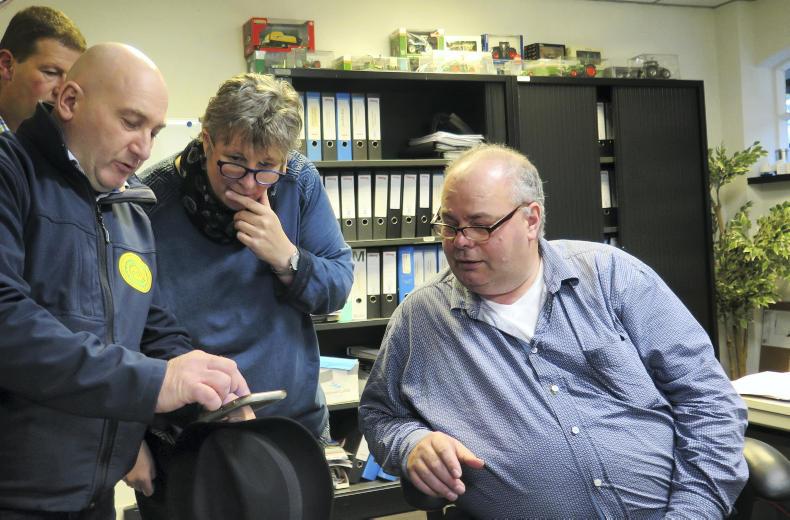
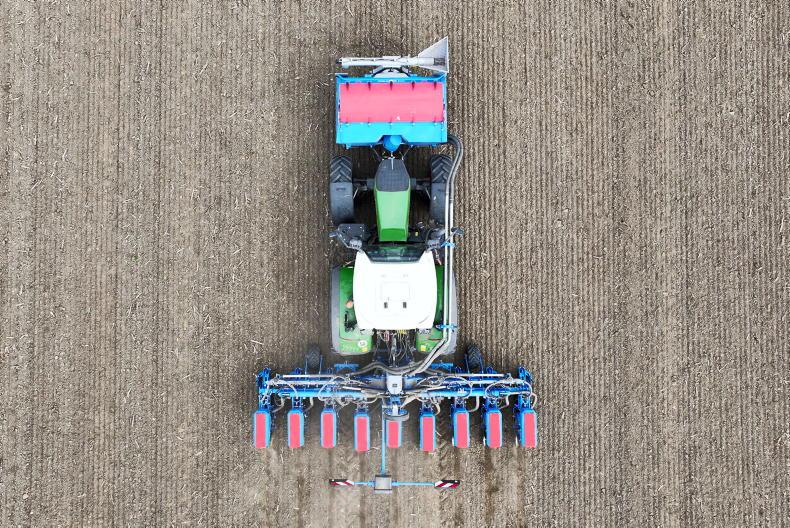

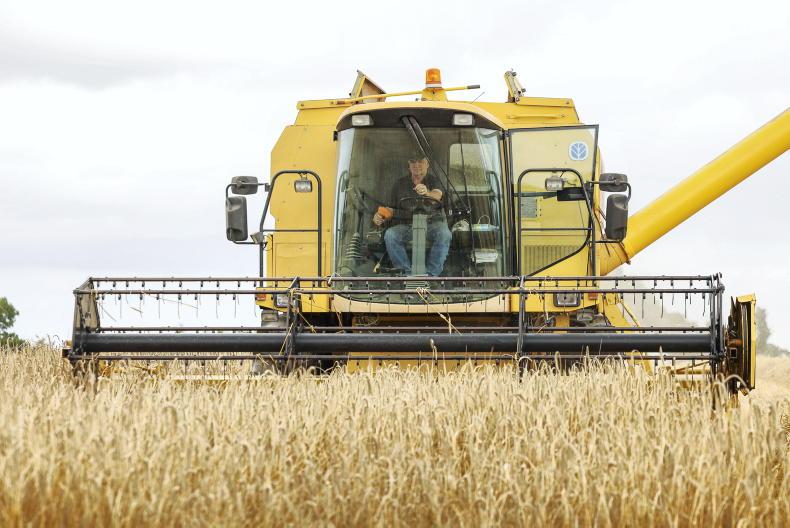
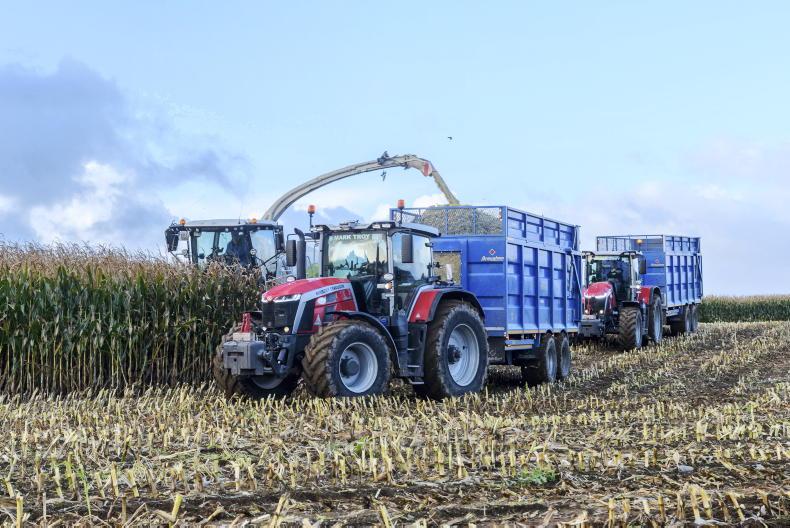
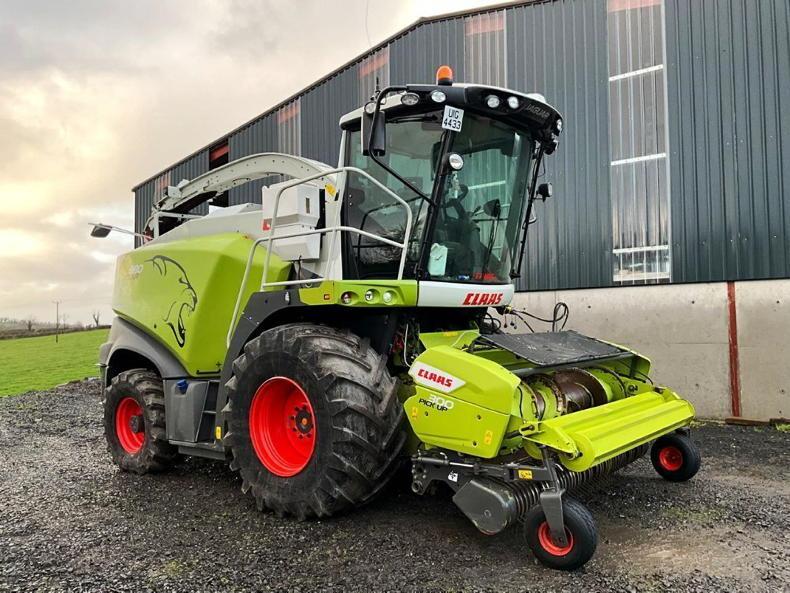
SHARING OPTIONS